
Luka Stärk and Carolin Scholl win the DISPLIB 2025 Competition for real-time train dispatching. Their custom branch-and-bound algorithm solved the difficult scheduling problems, many of them even to proven optimality. The innovative method has a parameterized complexity of O(4^k poly(n)), where k is the number of conflicts and n is the number of operations. The international competition was held in two phases, with problem instances published in October 2024 and February 2025, respectively. The winners were announced at the International Conference on Optimization and Decision Science (ODS 2025), which took place from September 1 to 4 in Milan. Luka Stärk will be researching train dispatching in the MobilityLab at the MODAL research campus starting in November. The photo shows Luka Stärk receiving the award, with the chairs of the Scientific and Organizing Committees of the Competition, Giorgio Sartor and Bjørnar Luteberget, on his left and right, respectively. Congratulations to Carolin and Luka!
Luka Stärk and Carolin Scholl win the DISPLIB 2025 Competition for real-time train dispatching! #branch-and-bound algorithm for difficult #scheduling problems. #MODAL #MobilityLab @zuseinstitute.bsky.social
@mathplusberlin.bsky.social, @ Internat. Conf. Optim. & Decision Science, Milan 4 Sept 2025.
15.09.2025 15:23 — 👍 0 🔁 0 💬 0 📌 0
Detail - FG IBBB
16 Sept 2025, HTW Berlin: „Mathematical Optimization for the Energy Transition“ & „Introduction to Methods of Explainable AI" #XAI
Workshop Wirtschaftsmathematik meets Informatics at HTW with MODAL contributions by Janina Zittel and Ambros Gleixner
fg-ibbb.gi.de/veranstaltun...
12.09.2025 09:41 — 👍 0 🔁 0 💬 0 📌 0
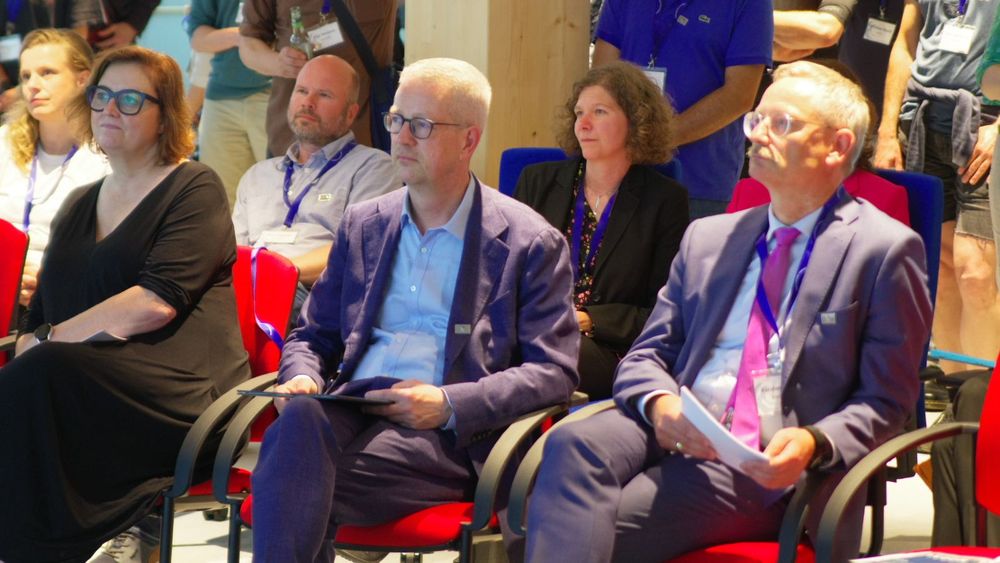
Dr. Ina Czyborra, Senatorin für Wissenschaft, Gesundheit und Pflege des Landes Berlin, Prof. Dr. Günter Ziegler, Präsident der Freien Universität Berlin, Dr. Karsten Hess, Referatsleiter Universum und Materie im BMFTR, Bundesministerium für Forschung, Technologie und Raumfahrt at the opening of MODAL's third funding period,
@freieuniversitaet.bsky.social
@gmziegler.bsky.social
@zuseinstitute.bsky.social
@mathplusberlin.bsky.social
@senbjf.bsky.social
( c ) ZIB
MODAL - Smart Solutions for the Digital Society - BMFTR, German Federal Ministry of Research, Technology, and Space highlights MODAL's third funding period:
www.forschungscampus.bmbf.de/aktuelles/st...
30.07.2025 12:31 — 👍 1 🔁 0 💬 0 📌 0
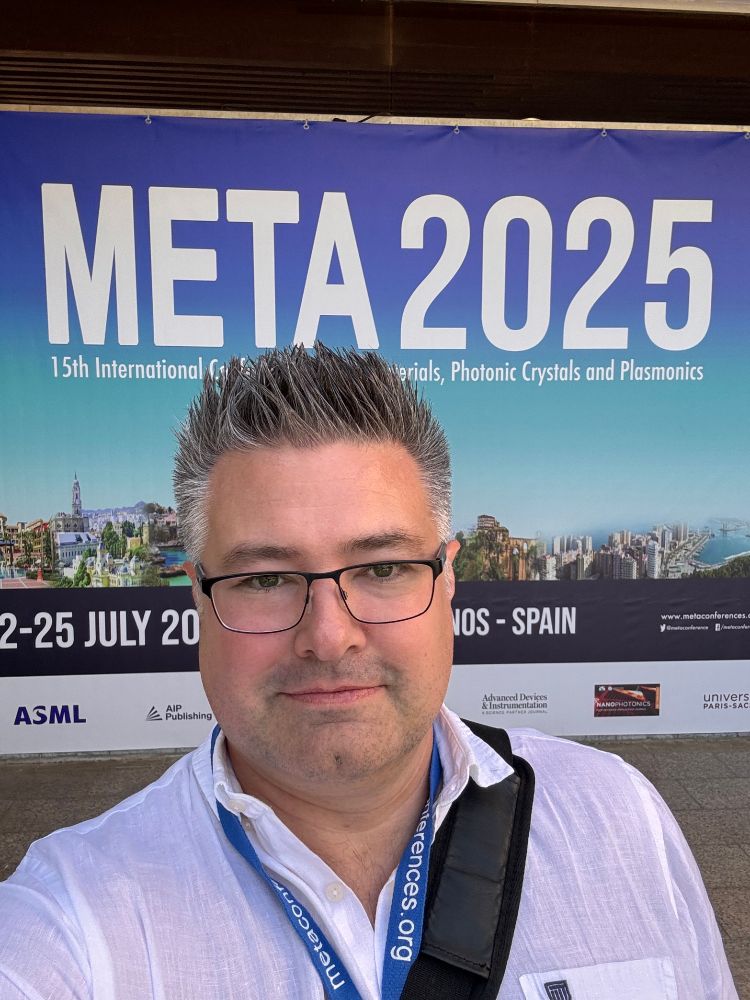
Image: M.H. at META2025, Malaga,
upcoming presentation: "Physics Informed Bayesian Optimization For Efficient Solution Of Inverse Problems In Nanophotonics"
Abstract: We introduce physics-informed multi-channel Bayesian optimization for inverse design problems in nanophotonics and nanometrology. By learning vector-valued physical properties of numerically simulated systems, from which the final cost is constructed, our approach achieves faster convergence compared to other optimization methods, enhancing efficiency in solving inverse problems across engineering and physics.
Martin Hammerschmidt, CEO @JCMwave.bsky.social, presents MODAL-#NanoLab results at the 15th International Conference on Metamaterials, Photonic Crystals and Plasmonics, META 2025, Malaga, Spain, 23 July 2025. #MachineLearning #BayesianOptimization @cnoatzib.bsky.social,
Inv Talk in Session 2A10.
22.07.2025 11:35 — 👍 3 🔁 0 💬 0 📌 0
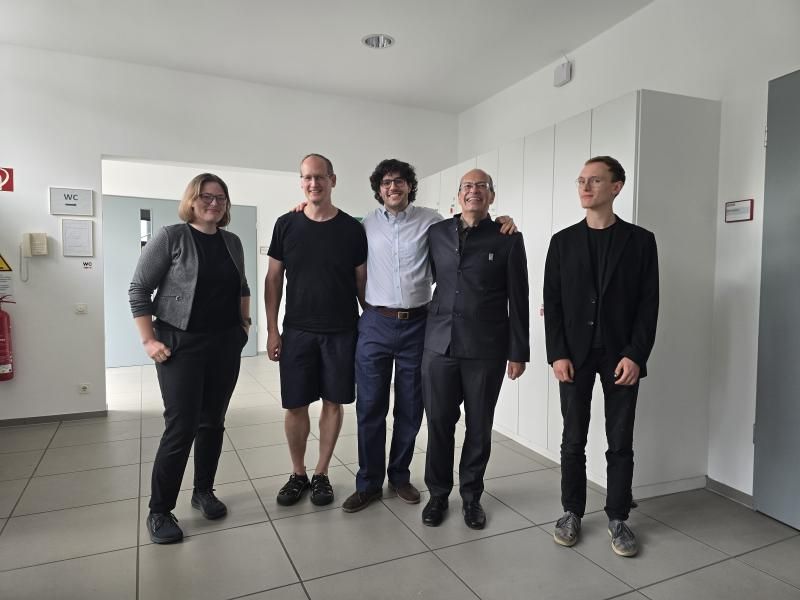
Enrico Bortoletto introduced two novel geometric perspectives on the periodic event scheduling problem, that was hitherto studied in terms of periodic tensions. In the periodic timetabling space, the set of feasible solutions turns out to be a collection of polytropes, i.e., tropical polytopes that are also polytopes in the Euclidean sense. These polytropes have a neighborhood structure that arises from flips in periodic tensions, and that in turn gives rise to a new tropical neighborhood search algorithm. This method effectively complements existing methods and fueled the discovery of new best solutions to five of the twenty-two instances of the PESPLIB, a collection notoriously difficult benchmark testset for periodic timetabling. In the cycle offset space, the fractional solutions produce a cographic zonotope feature a fine tiling, in which the maximal tiles correspond in a duality relation with the feasible timetables. Furthermore, the volume of the cographic zonotope equals the number of spanning trees, and a scaled version provides a lower bound for the width of a cycle basis, two result that are interesting in their own right. Cycles are also the key to deal with constraints on the occupation of infrastructure elements that ensure, e.g., that at any time only one train is scheduled to be at any platform; these inability to deal with such constraints has been a major problem in practical applications, in particular, in the timetabling for construction sites. By a canonical extension of the standard periodic timetabling formulation, such constraints can now be dealt with efficiently, as the thesis demonstrates at the example of scenarios at the S-Bahn Berlin.
Photo (l to r) P. Schiewe, C Haase, E Bortoletto, R Borndörfer, A Freyer.
https://www.zib.de/research/projects/modal-mobilitylab
https://www.zib.de/research/projects/algebraic-and-tropical-methods-periodic-timetabling
https://mathplus.de/research-2/application-areas/aa3-next-generation-networks/aa3-8/
Enrico Bortoletto successfully defended his PhD dissertation “Geometric Advances and Infrastructure Awareness in Periodic Timetabling” at the Institute of Mathematics at Freie Universität Berlin on July 14, 2025, @zuseinstitute.bsky.social @mathplusberlin.bsky.social @fc-modal.bsky.social
21.07.2025 11:37 — 👍 2 🔁 1 💬 0 📌 0
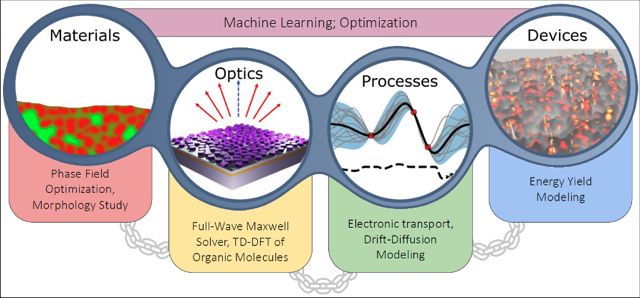
Image: Solar TAP Online Workshop on Digital Twins for Emerging Photovoltaics, https://solartap.de/events/solar-tap-online-workshop-on-digital-twins-for-emerging-photovoltaics/
Solar TAP Online Workshop on Digital Twins for Emerging #Photovoltaics, 30.06.-01.07.2025: solartap.de/events/ features a session on Optical Simulations with #JCMsuite by #JCMwave #SolarTAP @fc-modal.bsky.social @kit.edu @crockstuhl.bsky.social
24.06.2025 14:12 — 👍 2 🔁 1 💬 0 📌 0

On the occasion, Thorsten Koch crated cocktails in the colors of Forschungscampus MODAL
21.06.2025 15:58 — 👍 3 🔁 0 💬 0 📌 0
Opening speeches given by Ina Czyborra, Karsten Hess, @gmziegler.bsky.social, Carsten Busch, Thomas Herrmann, Thomas Meißner, Ralf Borndörfer, and Sebastian Pokutta! Highlights from the labs: EnergyLab, MedLab, MobilityLab, NanoLab, HPCLab, SynLab
21.06.2025 15:51 — 👍 2 🔁 1 💬 1 📌 0
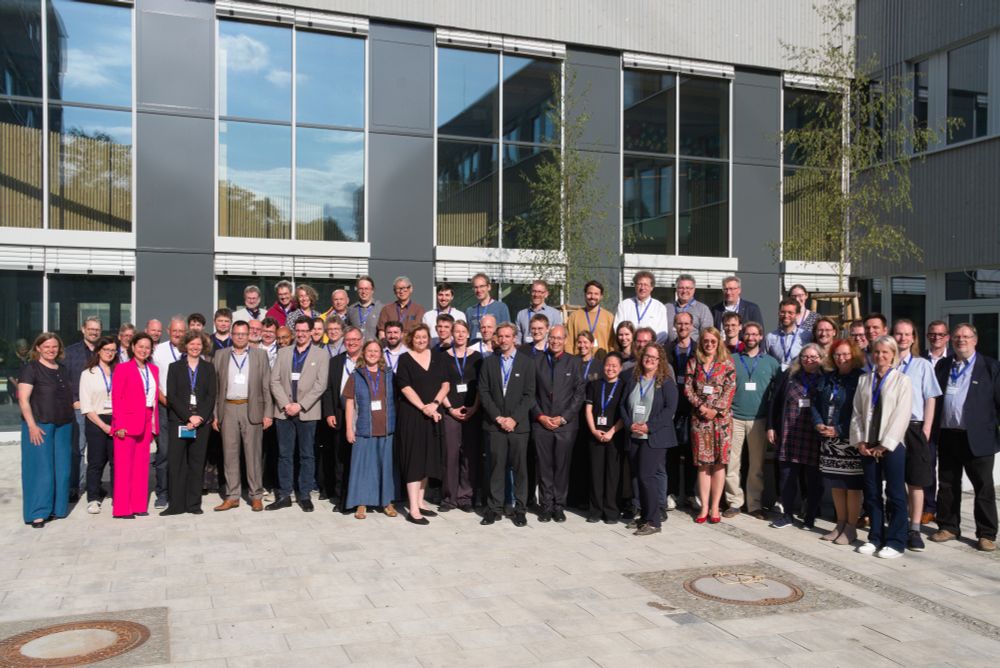
Opening of MODAL / Phase3 on 16 June 2025 & Inauguration party of new #FUHUB labs and offices at #FUBIC @zuseinstitute.bsky.social @freieuniversitaet.bsky.social @mathplusberlin.bsky.social @htwberlin.bsky.social
21.06.2025 15:50 — 👍 4 🔁 0 💬 1 📌 1
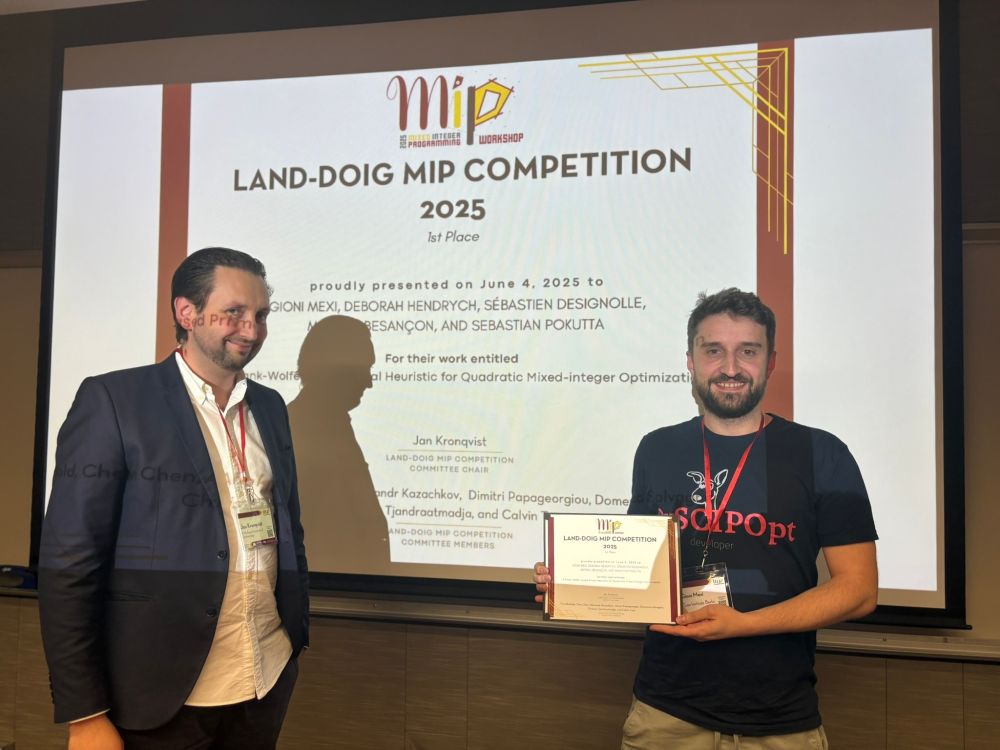
Gioni Mexi, Deborah Hendrych, Sébastien Designolle, Mathieu Besançon, and Sebastian Pokutta were awarded the Land-Doig Competition Prize 2025 at the Mixed-Integer Programming Workshop 2025 for the best contribution to the heuristic solution of Mixed-Integer Quadratic Optimization Problems (MIQP and MIQCQP).
The competition focused on the development of innovative primal heuristics that can quickly generate high-quality feasible solutions. The awarded contribution extended Boscia.jl - developed at the Zuse Institute Berlin - with novel Frank-Wolfe-based large neighborhood search heuristics, as well as gradient- and decomposition-based heuristics, specifically designed for quadratic optimization problems.
The method found feasible solutions for 88 out of 95 benchmark instances, on average in just 12.8 seconds, and achieved a mean optimality gap of 5.1%. In addition, it improved eight best-known solutions in the QPLIB benchmark library.
The photo shows, from left to right: Jan Kronqvist, Assistant Professor at KTH Royal Institute of Technology in Stockholm and member of the competition's organizing team, and Gioni Mexi.
ZIB team of Gioni Mexi and Coauthors wins the Land-Doig MIP Competition at #mip2025 @fc-modal.bsky.social @mathplusberlin.bsky.social
www.zib.de/news/team-wi...
19.06.2025 13:43 — 👍 13 🔁 2 💬 1 📌 0
@spie.org Digital Optical Technologies 2025 #LaserMunich: Visit Talk by Ivan Sekulic on Physics informed Bayesian optimization for inverse design of diffractive optical elements! @jcmwave.bsky.social @zuseinstitute.bsky.social @fc-modal.bsky.social #NumericalOptimization #Photonics
19.06.2025 11:26 — 👍 3 🔁 2 💬 1 📌 0
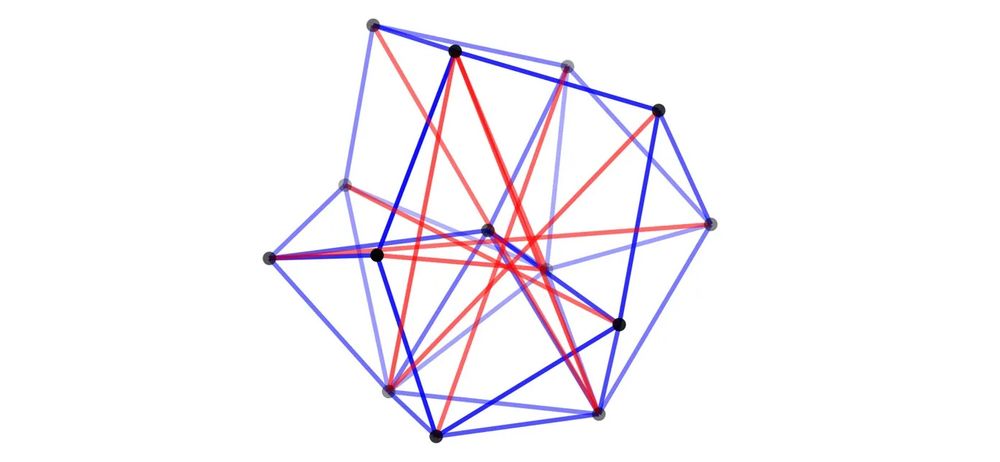
Google DeepMind’s #AlphaEvolve recently set records on 13 notoriously difficult math problems. At MODAL we were curious: Could we tackle those with mathematical optimization instead of AI heuristics? Read the FICO blog to learn how we improved on DeepMind’s results:
www.fico.com/blogs/best-g...
16.06.2025 12:42 — 👍 0 🔁 0 💬 0 📌 0
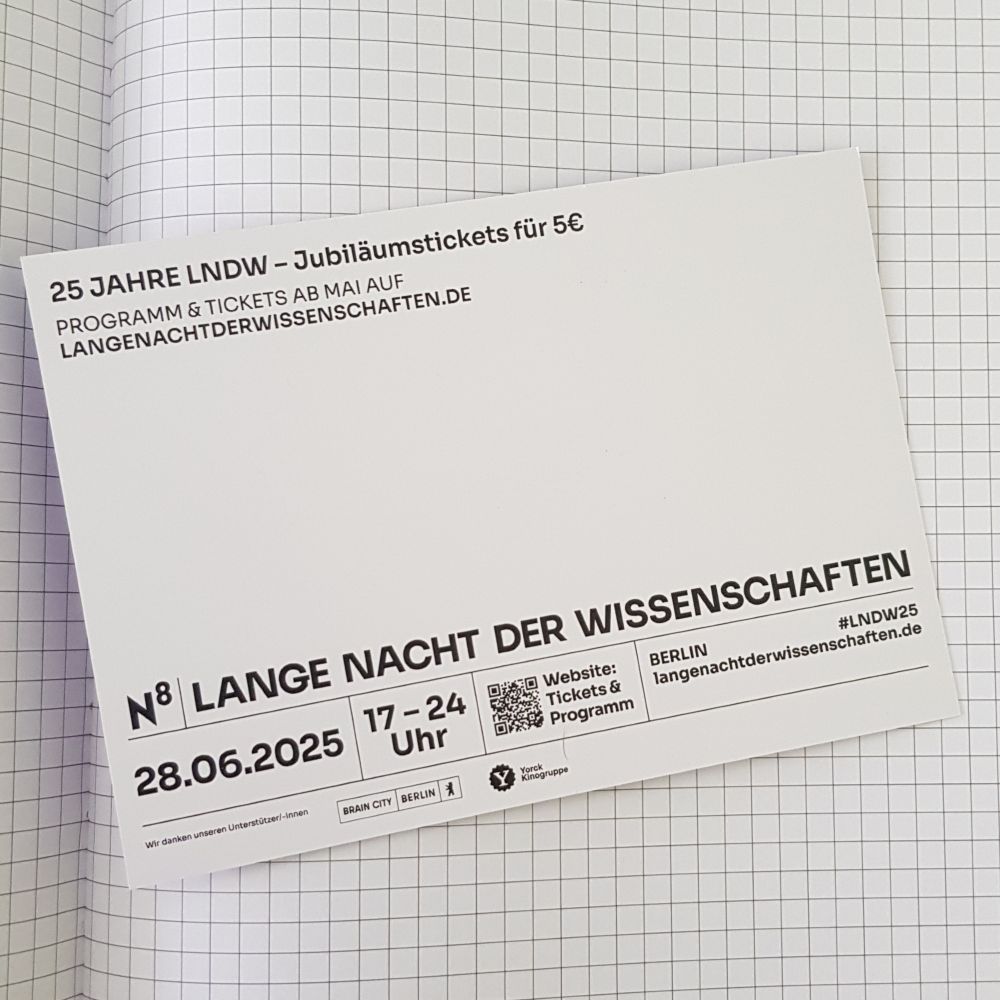 11.06.2025 11:44 — 👍 0 🔁 0 💬 0 📌 0
11.06.2025 11:44 — 👍 0 🔁 0 💬 0 📌 0
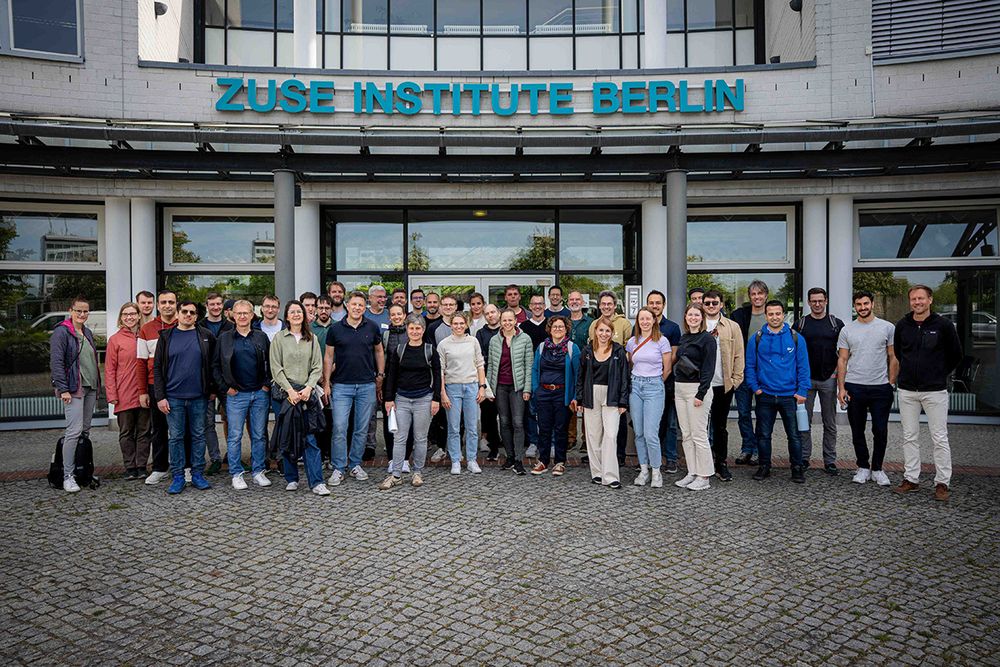
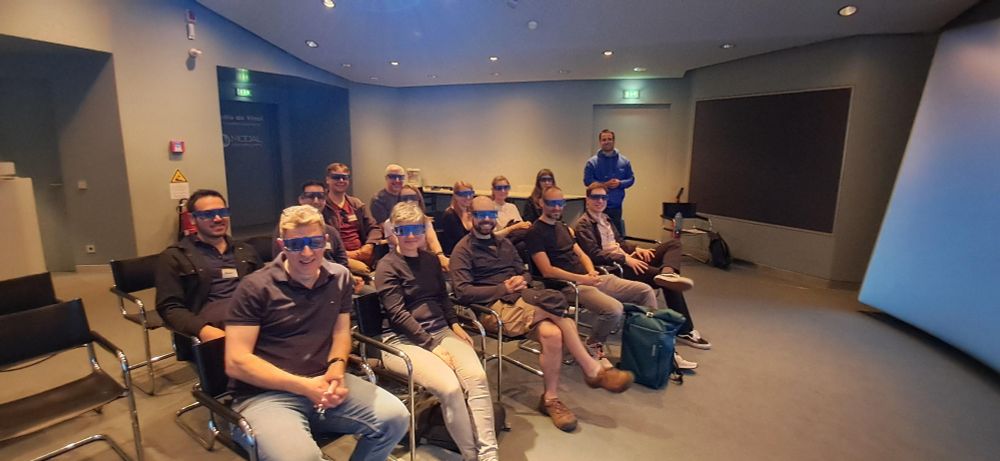
MODALs new industrial partner Stryker Berlin GmbH visited MODAL at ZIB together with their Freiburg colleagues from Stryker Leibinger GmbH & Co KG, Patient Specific Solutions. Research in #Medicine #LifeSciences #3Dvisualizations.
11.06.2025 07:25 — 👍 0 🔁 0 💬 0 📌 0
The opening of Phase 3 of the MODAL research campus will take place on June 16, 2025 at the FUHUB in Berlin.
10.06.2025 13:16 — 👍 0 🔁 0 💬 0 📌 0
The research campus is hosted by ZIB, located at the campus of the FU in Berlin, and conducts research and development of digital systems for the optimization of data-driven processes in the fields of energy, health, mobility and communication.
10.06.2025 13:15 — 👍 1 🔁 0 💬 0 📌 0
MODAL is a partnership project of research partners @zuseinstitute.bsky.social & @freieuniversitaet.bsky.social with >30 industrial partners, funded by the Federal Ministry of Research, Technology and Space within the “Research Campus – Public-Private Partnership for Innovation” funding initiative.
10.06.2025 13:15 — 👍 2 🔁 0 💬 1 📌 0
zbMATH Open is the world’s most comprehensive and longest-running reviewing service in mathematics, edited by the European Mathematical Society, the Heidelberg Academy of Sciences and Humanities, and FIZ Karlsruhe.
Nachrichten und Infos rund um die Heinrich-Heine-Universität Düsseldorf von der offiziellen Redaktion.
Founded at 320 ppm.
http://hhu.de/datenschutz-social-media
Forschungsnachrichten aus dem KIT, der Universität in der Helmholtz-Gemeinschaft und einzige deutsche Exzellenzuniversität mit nationaler Großforschung.
https://www.kit.edu/
https://www.kit.edu/impressum.php
https://www.kit.edu/datenschutz.php
Hier postet die TU Darmstadt: #TUDa #researchTUDa Impressum: https://tu-darmstadt.de/impressum/
Deutschlands größte Wissenschaftsorganisation
Webseite: https://www.helmholtz.de
Mastodon: https://helmholtz.social/@helmholtz
Impressum: https://www.helmholtz.de/socialmedia
Hier postet das Team Presse und Kommunikation der Technischen Universität Braunschweig.
Impressum: https://www.tu-braunschweig.de/impressum
Official account of the Max Planck Society. Devoted to basic #research in #physics #astronomy #chemistry #biology #earthsciences #materialscience #mathematics #socialsciences and the #humanities; Imprint: https://www.mpg.de/imprint
Der offizielle Bluesky-Account der Universität Potsdam. Hier postet das Presse-Team. Impressum und Datenschutz: https://www.uni-potsdam.de/de/presse/aktuelles/social-media
Groundbreaking foundational research in Big Data Management, Machine Learning, and their intersection. #AI #Research
www.bifold.berlin
📰News: www.bifold.berlin/news-events/news
🔑Data Privacy: www.bifold.berlin/data-privacy
Die DFG ist die größte Forschungsförderorganisation und die Selbstverwaltungsorganisation der Wissenschaft in Deutschland.
www.dfg.de
Impressum: https://www.dfg.de/de/service/kontakt/impressum
Social Media-Netiquette: https://www.dfg.de/de/service/presse
Scientist, #MachineLearning and #AI for Moleculear Sciences. Scuba Diver. Loves @cecclementi.bsky.social
Research Institute in Berlin, Member Institute of the @leibniz-gemeinschaft.de
Eines der größten Solarforschungsinstitute | One of the largest solar research institutes
Imprint: http://s.fhg.de/g7r
Where the future begins. 🚀🔬 One of the world’s leading universities for technology & natural sciences. Posts in both English and German.
www.ethz.ch
We're pioneering the future of physical chemistry. Uniting scientists globally, working on energy & matter transformations at interfaces.
www.fhi.mpg.de
Welcome to our official account 👋 Follow for the latest news, research and updates about life at Oxford.
Hier informiert das Kommunikations-Team der #HTWBerlin über aktuelle News aus der Hochschule!
http://htwb.de/impressum
http://htwb.de/datenschutz
Wir fördern Naturwissenschaften, Mathematik und Informatik.
#bildung #forschung #wisskomm
Datenschutz/Impressum: http://klaus-tschira-stiftung.de/datenschutz
European Research Council, set up by the EU, funds top researchers of any nationality, helping them pursue great ideas at the frontiers of knowledge. #HorizonEU
Die Fraunhofer-Gesellschaft ist eine der führenden Organisationen für anwendungsorientierte Forschung.
Impressum: https://www.fraunhofer.de/de/impressum.html









 11.06.2025 11:44 — 👍 0 🔁 0 💬 0 📌 0
11.06.2025 11:44 — 👍 0 🔁 0 💬 0 📌 0

